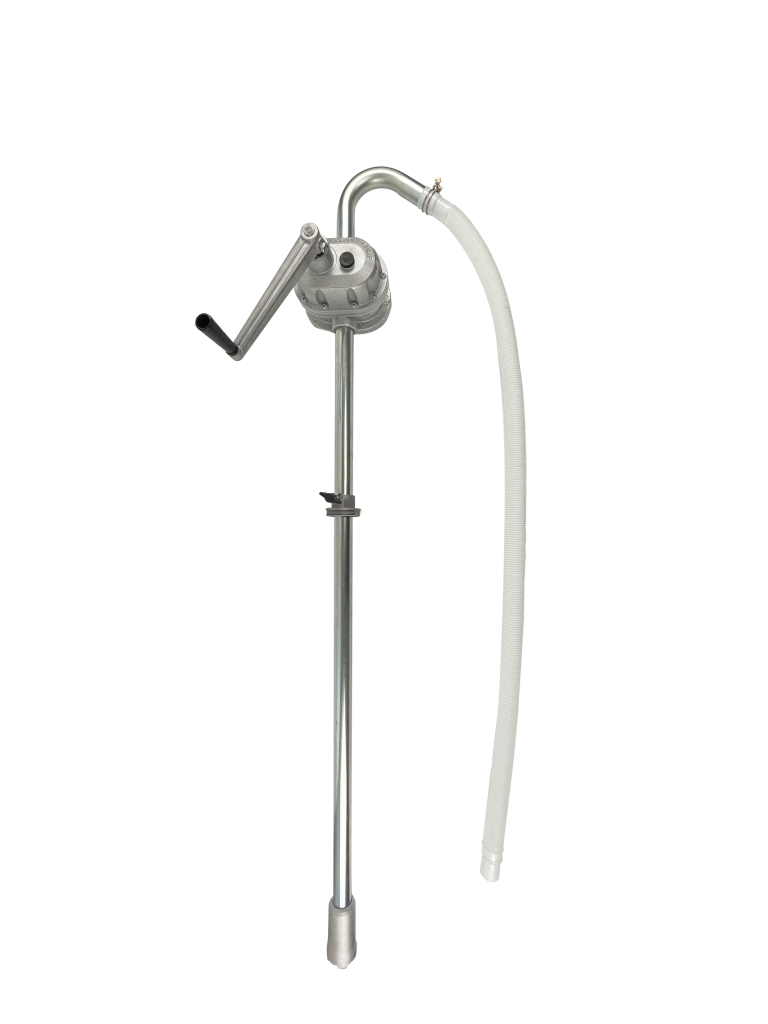Whether in a laboratory, workshop, or industrial plant, moving fluids from containers by hand is a common need. While motorized pumps work for larger transfers, a simple manual pump is often the most practical solution for occasional duties. Rotary hand pumps offer unique benefits that make them the top choice for manual liquid transfer in […]
Whether in a laboratory, workshop, or industrial plant, moving fluids from containers by hand is a common need. While motorized pumps work for larger transfers, a simple manual pump is often the most practical solution for occasional duties. Rotary hand pumps offer unique benefits that make them the top choice for manual liquid transfer in many situations.
Here are 5 of the primary reasons to use a hand pump rotary:

Compact and lightweight, rotary hand pumps deliver manual pumping action anywhere needed. Their slim design easily fits into crowded workbenches and storage cabinets. With no electricity or batteries required, operation is truly tetherless.
This portable pumping ability provides versatile fluid transfer capability both indoors and outdoors. Easily move solvents between vessels in the lab, drain fluid from equipment into a disposal barrel, or take field samples from remote collection points. Wherever liquid needs transferring by hand, a fuel transfer pump can do the job.
Rotary hand pumps are dramatically cheaper than motorized pumps in both upfront and operating costs. Their simple manual operation avoids the expense of electricity, fuel, or batteries to power a motor. Maintenance is also minimal without any motorized parts to service.
The low ownership cost makes manual pumps affordable backups for motorized pumps. They also enable transferring small volumes cost-effectively where motorized pumps would be overkill. The price difference is substantial for tasks only requiring a fuel transfer pump occasionally.
With no electric components, rotary hand pumps pose no spark hazard for flammable liquids like gasoline or solvents. Their intrinsically safe design complies with safety regulations for hazardous location pumping. This enables safer chemical transfer where motorized pumps could ignite vapors.
Manual pumps also eliminate the risks of electric shock which is critical when operators are in direct contact with pumped fluids. Pumping by hand instead of machine controls the transfer process for added safety.
Oil transfer pump suits a wide range of low to medium viscosity liquids thanks to customized sealing options. Seal designs including piston, liner, and gland packing accommodate everything from solvents and gasoline to viscous oils and corrosive chemicals. This flexibility suits the diesel transfer pump for myriad transfer applications.
The manual pumping action also generates little heat, avoiding viscosity or chemical property changes from temperature rise. Gentle fluid transfer preserves the liquid properties. Careful material selection ensures chemical compatibility for pumping aggressive solvents and acids.
Compared to motorized counterparts, rotary hand pumps offer easy, intuitive operation perfect for casual users. Just insert the tube and start rotating the handle – no complicated controls. The manual workload is just enough to move liquid without becoming overly fatiguing.
The minimal parts design also keeps maintenance straightforward. Seal replacements and occasional greasing of gears or bearings are the only routine upkeep needs. For small-volume pumping tasks, hand pumps virtually never break down.
Whether priming a siphon, collecting a field sample, or replenishing a laboratory wash bottle, a fuel transfer pump takes care of manual liquid transfer jobs with simplicity and safety. They pack versatile pumping power into an inexpensive, low-maintenance, and portable manual package. For light-duty applications, rotary hand pumps are an efficient alternative to cumbersome and costly motorized units. Next time you need to move fluids by hand, be sure to choose a fuel transfer tank pump matched to the liquid properties and flow demands. Brands like Aocheng offer sealed models designed to provide years of trouble-free pumping across dozens of applications spanning fuels, solvents, acids, and more.




